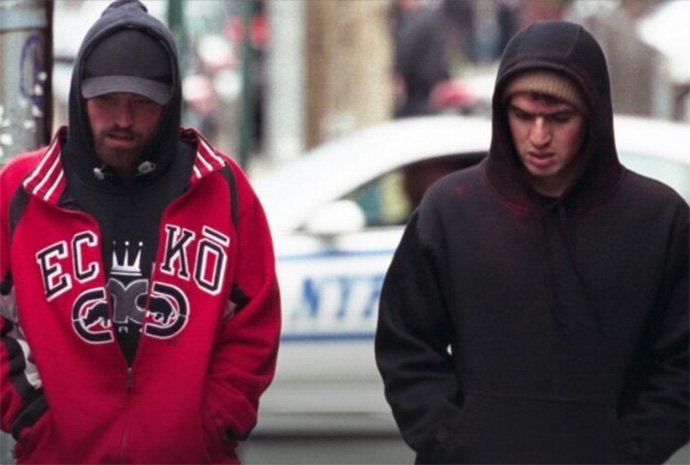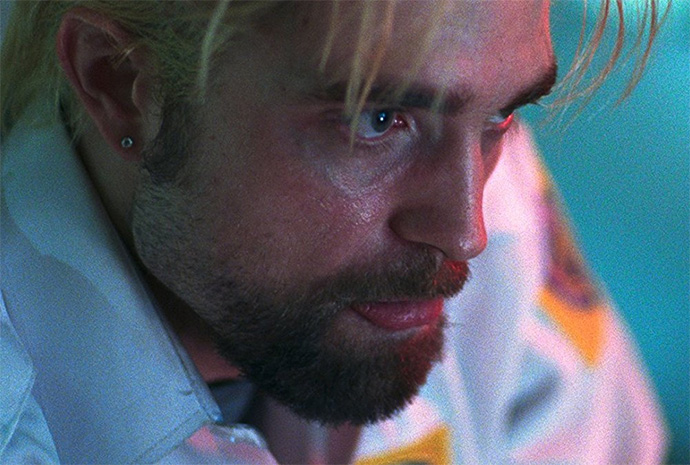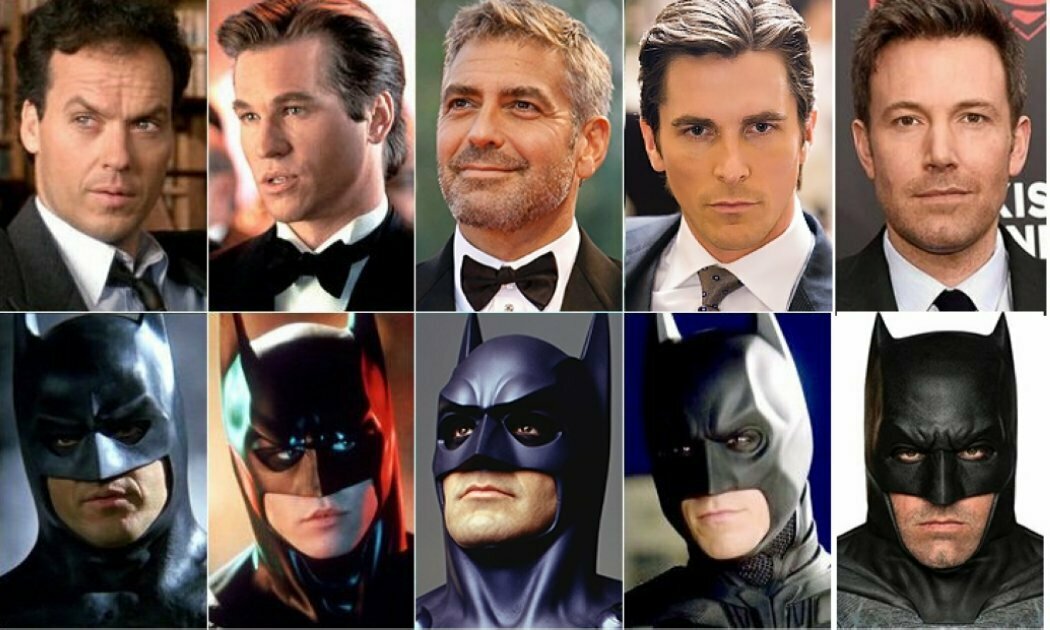Is your brother okay?
While it took Kristen Stewart till Olivier Assayas’s Personal Shopper to shake off the Bella dust and be regarded seriously as an actress, and one who could shoulder a film entirely on her own, her Twilight co-star Robert Pattinson has the Safdie brothers to thank for doing the exact same thing. Pattinson has had some interesting roles since the popular franchise, including promising turns in the Australian film, The Rover, and the underrated The Lost City of Z by James Gray, but you will never see him in the same light after Good Time, where he gives his finest performance to date.
Apparently, Pattinson approached the Safdies in hopes of collaborating on a project after seeing their previous work, 2014’s Heaven Knows What. He captures the frenetic and panicky nature of his character, Connie, who hatches a plan to rob a bank with his mentally-ill brother. But after it goes awry, Connie, who barely escaped, must attempt to find ten grand to bail his brother out before he is sent to the infamous Riker’s Island prison, a place certainly not kind to folks with psychological disorders.

At once a race-against-time thriller and an exercise in subverting genre tropes, Good Time sees Josh and Benny Safdie (the latter playing Connie’s brother) in fine form delivering a suspense-laden work that sprints—and occasionally strolls—to its own beat. Amid the kinetic cat-and-mouse chases, there’s always dark comedy and human pathos around the corner, giving the film dramatic weight in the least expected moments.

Black comedy comes in the form of Ray, a supporting character who is played by the relatively unknown Buddy Duress (first seen in Heaven Knows What) in what appears to be an instrumental role. On the other hand, pathos comes from Connie’s relationship with his brother, one that is borne out of unconditional love. Connie senses a higher purpose, that he must salvage what’s left of his family before the society—in its merciless intent—lands them an irreversible blow. The film also features Jennifer Jason Leigh (The Hateful Eight) and Barkhad Abdi (Captain Phillips) in memorable supporting performances.

Good Time is as much a film about the consequences of social injustice as it is an evocation of the brutal reality of lives affected by violence and drugs. Several critics have pointed out about how it is similar to Martin Scorsese’s 1976 classic, Taxi Driver, in its portrayal of the filth and scum of lowly street life—Connie and Ray are certainly the kind of people Travis Bickle would have wanted the rain to wash off the streets. In an endless cycle of always being one step ahead for his brother, but two steps behind the law, Connie’s relentless drive to carve out something tangible to hold on to is what gives the picture its character-driven momentum.

On the other hand, the pulsating electronic-synth soundtrack, scored by Oneohtrix Point Never (also known as Daniel Lopatin, who worked on The Bling Ring starring Emma Watson), pushes the movie forward sensorially. Coincidentally, the electronic music of both Martinez and Lopatin have won the soundtrack award at the Cannes Film Festival in the last two years, for The Neon Demon and Good Time respectively.

The Safdies’ visual style for Good Time is grungy, and sometimes, even hallucinogenic, with neon lights and dingy settings a favourite, all shot in 35mm film cameras. A remarkable sequence involves a night-time trespass into an empty amusement park—watch how the Safdies create unnerving tension through image and music. “Good Time” often refers to the reduction of a prison sentence due to good behaviour, but what these characters desperately need is good luck.
Watch Robert Pattinson talk about Good Time on Jimmy Kimmel Live:






